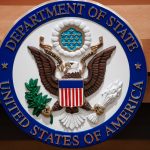A Fast-Improving Business Environment
For many years, Walter Martinho offered his freelance guide services and car rentals to tourists exploring Sao Tome and Principe, a small West African island nation in the Gulf of Guinea.
But Walter faced a critical impediment to formalizing his business. Car rentals, travel agencies, tourism services were subjected to the complex alvarás, a century-old business licensing regime introduced on the islands by the colonial Portuguese. Although Sao Tome and Principe gained independence in 1975, the colonial heritage and the post-colonial reforms continued to heavily burden the business environment.
Then starting in early 2011, the Sao Tome and Principe government worked with the World Bank Group to abolish the archaic system. In 2012, Walter was able to register his business Tortuga Ltd. at the newly established one-stop shop for business registration. It took Walter 48 hours to register his business.
“When I saw that the government passed the law abolishing the alvarás for small tourism businesses, on top of the new, simple registration process, I knew there was nothing more to wait for, and I started my company,” said Walter.
Since the abolition of the alvarás, many more entrepreneurs have started to formalize their existing or new businesses. In 2010, 57 businesses were registered in Sao Tome and Precipe; in 2011 the number more than quadrupled to 241, and then to 388 in 2012—up by another 61 percent.
Since registering the business, Walter’s business hired two full-time and 10 part-time staff. The firm is now able to provide cars that are regulation compliant, properly registered, insured, and documented. “We now provide a greater security and safety to our clients. All our cars are in perfect shape and my guides offer top services,” said Walter. “Now it does make sense to pay taxes and other contributions for my employees—I am finally getting a value from our public administration,” he added.
After abolishing a century-old alvarás business licensing regime, Sao Tome and Principe was recognized by the Doing Business report in 2012 as one of the world’s fastest improving business environments. In the same year, the Heritage Foundation’s Index of Economic Freedom named the country the top global reformer of the business regulations, while the reforms also got captured by the Transparency International’s Corruption Perception Index which registered an improvement of 28 places from 100th place to 72nd in 2012 and a noteworthy reduction of perceived corruption. A number of other surveys and reports confirm fast and far-reaching reforms in the country.
Streamlining Trade Procedures
Since the successful reform of the business licensing regime, the World Bank Group has been making further progress on the partnership with the government of Sao Tome and Principe to encourage increased trade and investment. The country joined IFC, a member of the World Bank Group in 2008, signaling at home and abroad a bigger role for the private sector in the country’s development. On September 10, 2013, the World Bank Group launched a trade facilitation program jointly with the government of Sao Tome and Principe and Investment Climate Facility for Africa.
Helio Almeida, Sao Tome and Principe’s Minister of Planning and Finance, announced at the launch of the program that with the World Bank Group’s support his country will move further forward by streamlining bureaucracy and eliminating barriers to trade. He said, “Border agencies will all come together for the first time to facilitate foreign trade through the implementation of the Single Window for Foreign Trade.”
The changes will encourage public transparency, and significantly lower costs for businesses. “This joint trade facilitation effort will allow trade to grow and spur agricultural and other local production to promote Sao Tome and Principe’s products abroad,” said Jean Philippe Prosper, IFC Vice-President for Sub-Saharan Africa and Latin America and the Caribbean.
Later in the week, Prosper spoke to local entrepreneurs and policy makers about economic diversification in small states, further encouraging efforts to make trade and invest easier and more efficient.
The trade facilitation project will strengthen existing customs administration systems and establish a single window for trade over the coming 18 months. The single window will be an electronic system where traders can submit all export and import documents through a single point of entry and exit and make only one payment to cover the fees of various agencies and stakeholders—11 in total—linked by the platform.
“We believe that we have found a credible partner in the government of Sao Tome and Principe, and we are confident that public revenues will significantly increase from this change,” said Thomas Fugelsnes, Project Manager of Investment Climate Facility for Africa.



